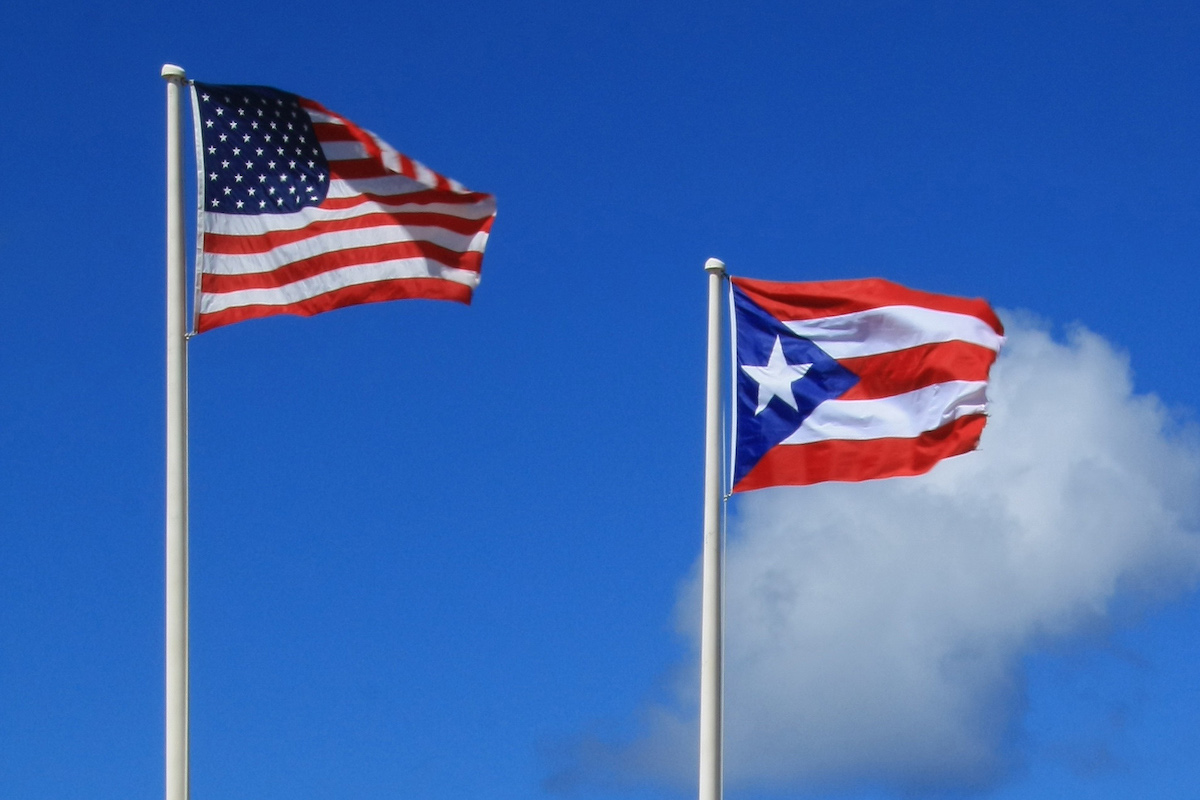

(Photo by Arturo de la Barrera via Wikimedia Commons)
The political status of Puerto Rico is an issue that rarely impacts the American mainland. The issue’s origins and consequences are a long-forgotten episode, a curios fun fact of the Spanish-American War. However, for Puerto Ricans, it is a controversy that is alive and well. For a large part of Puerto Rico’s history, it has been the defining political issue. As such, the debate on the Island’s status has been acrimonious among both insular and mainland Puerto Ricans. Puerto Rico’s status, in short, has been a never-ending altercation, a political maze almost impossible to escape.
In order to properly understand the issue, we must realize, whatever its merits, that Puerto Ricans in their vast majority have historically favored permanent union with the rest of the United States. For example, in all plebiscites on the island’s status, either autonomy or statehood have won. The discussion has been more over what form of permanent union is wanted inside the U.S. rather than whether Puerto Rico should aspire to independent. Furthermore, it must be understood that in American constitutional jurisprudence, statehood is the classical form of self-determination and self-government for territories. It is a maxim of American political history that states are not created by Congress, but by the people of a particular state. As the Puerto Rico Supreme Court recently explained, “States create themselves using whatever mechanisms they deem fit.” This means that under our constitution, states are created before admission, although the mechanism for that creation varies between states. Moreover, this signifies that states exist before admission to the Union. In sum, although Congress is the one that admits states, only the people of a territory can create a state.
Keeping this in mind, it is also an essential fact that the right to self-determination in American history involves a fundamental right to statehood. It is the reason why no territory has ever been prevented from, if they desire it, achieving statehood. In Puerto Rico, the status issue has historically been one of conflicting visions of sovereignty—this is why it is no surprise that some people do not consider statehood a legitimate form of self-determination.
It is for these reasons that the 2020 statehood YES or NO plebiscite was so important. Instead of going over a myriad of conflicting definitions over status options and definitions, the Puerto Rican legislature decided to break out of the status labyrinth and directly, for the first time, ask Puerto Ricans if they wished statehood with a simple YES or NO question. The YES vote won with 52.34% of the vote, a clear mandate with a large majority. Statehood also won more votes than any candidate for political office anywhere in Puerto Rico. It also had high participation and none of the traditional boycotts from the anti-statehood parties. As such, for the first time in Puerto Rico’s history, there is a clear majority vote for statehood. In other words, Puerto Ricans have used the mechanisms of self-determination to start the process of admission. The U.S. Congress and Puerto Rican leadership now have a responsibility to move towards admission. So, what follows the vote?
First, the Puerto Rican legislature should pass a formal resolution petitioning for admission so that the new pro-statehood administration can begin lobbying Congress for admission. An Act of Admission should be prepared, which states clearly that Puerto Rico is incorporated and on route to statehood, with a transition period in which both the federal and insular government develop an economic reconstruction plan for Puerto Rico. For its part, Puerto Rico must eliminate all tax incentives which are incompatible with statehood and aspire for the full integration of the island in the Internal Revenue System. Additionally, statehood leaders must organize with civil rights groups and diaspora leadership all over the nation to pressure Congress so that the sovereign will of Puerto Ricans is obeyed by the federal government. Obviously, there should be ample space for pragmatism and flexibility in this process, but Puerto Ricans have an inalienable right to self-determination and, as Americans, a fundamental right to Statehood. As president Gerald Ford explained: “The common bonds of friendship, tradition, dignity and individual freedom have joined the people of the United States and the people of Puerto Rico. It is now time to make these bonds permanent through statehood.”
***
Rodney A. Ríos-Rodríguez is from Utuado, Puerto Rico. He is a lawyer and political scientist who graduate from the University of Puerto Rico. He is also a member of the Puerto Rico Young Republican Federation. Twitter: @rodney_rios95.



I don’t think the numbers, the math of each and every plebiscite done in Puerto Rico can substantiate your claim: “Puerto Ricans in their vast majority have historically favored permanent union with the rest of the United States.” Just take this last one that made it much more simpler with a YES, or NO vote for statehood. Only 52% voted for statehood, that means that a 48% (that’s a whole lot of PR’s) voted NO. Also the number of voters that voted against the PNP gubernatorial pro statehood party were overwhelming, unfortunately, PR does not have a runoff election process so the new governor won with a minority fo voters, 35%.